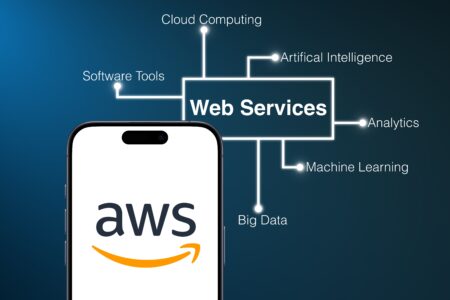How Accountants Can Use CRM Software to Stay in Touch with Clients
Looking at ways to better meet the needs of your clients is critical for accountants. Using customer relationship management software (CRM) is an excellent way to serve your clients by keeping them happy and engaged. CRM software is also simple to use, allowing accountants to work much more efficiently without constantly dealing with technical issues. You can also customize CRM software in a wide variety of ways, as accounting firms work with many different clients. Adding CRM software to your accounting business is always a worthwhile investment.
How CRM Software Impacts Accounting Firms
Understanding how to develop successful relationships with clients is a key focus for accountants. CRM software allows you to keep track of potential clients by scheduling discovery meetings. All of your documents also remain secure with cloud-based CRM software due to encryption technology. You can also schedule notifications related to each client to ensure you never miss a meeting or an important deadline. Ultimately, CRM software allows you to build a deeper relationship by allowing you to better meet each client’s unique needs.
CRM Software Provides Structure and Organization
One of the main advantages of using CRM software is that it’s easy for accountants to use the program without technical expertise. CRM software makes it simple to organize a wide range of data and allow you to make well-informed decisions to improve the bottom line for your firm. You can easily streamline your operations in an easy to read format, whether you are dealing with document management, financial prep, billing, workflow, or any other core functions.
CRM Software Allows You to Integrate Other Applications Easily
The core focus of CRM software enables you to stay up to date with current and potential clients while also allowing a wide range of apps to integrate with the platform seamlessly. Combining these apps in CRM software will enable you to access data in one location, saving you a lot of time and making your job much easier.
Integration with third-party applications creates a smooth experience that enables you to streamline all of your tools into one location. This is especially beneficial if a vendor owns a wide range of applications to offer a much more seamless experience. For example, HubSpot’s CRM system provides 21 different types of accounting integrations, such as QuickBooks Online, Paycove, Younium, Sage Accounting, Wave, Botkeeper, and many more. Customers can also check out the app marketplace at any time for additional updates. Cloud-based CRM software also allows you to access this information from any device connected to the internet.
Zoho is another software company that offers a wide variety of cloud-based applications that easily integrate with its existing CRM software. Each of these apps is contextually integrated, making it simple for accountants to perform a wide variety of tasks. Currently, the Zoho Marketplace gives users the flexibility to choose from over 300 CRM extensions, such as Xero, PayPal, FedEx, DocuSign, Quickbooks, and Shopify. All of these extensions can play a crucial role in helping you better serve your customers, and you can also choose from over 1,000 apps that can easily integrate into the CRM system. A few of the most popular applications include Dropbox, Zoho Workplace, Google Workspace (formerly G Suite), and Office 365.
Other software vendors focus on taking an alternate route by offering an API that advances integration with a variety of applications that take advantage of this tech. For example, PracticePro 365 uses the CRM framework for Microsoft Dynamics while also using the cloud hosting infrastructure offered by Microsoft’s Azure Cloud. Microsoft Dynamics also has hundreds of pre-built integrations with many other systems. Document management, MS Office, payment processors, and e-signature workflow easily integrate into the PracticePro 365 system. All of these available options make CRM software an excellent option for accountant firms.
Why You Need to Implement a CRM Application
Choosing to implement a CRM application is a fairly significant process, but it is well worth the effort. A CRM system allows accountants to better serve each client, which is a win-win situation for everyone. Using CRM software gives your accounting practice a much stronger foundation to establish long-term relations with each client. A well-adopted CRM will allow you to establish trust and help you become a thought leader in your industry by providing superior accounting services.
Potential Challenges of Using CRM Software
Implementing a CRM system isn’t without a few challenges. Understanding the potential obstacles is essential in helping you through this transition process. One of the biggest challenges for accountants is helping employees successfully navigate this transition with minimal disruptions. Creating a project plan that sets implementation goals provides structure during this transitional period. Working with an in-house IT team or tech support helps guide your firm throughout each stage of the implementation process.
Transitioning your accounting business to CRM software can feel like an overwhelming process if you try to do everything at once. Taking everything, one step at a time is important in limiting problems and ensuring that everything transitions smoothly. Typically, it is a good idea to start simple instead of trying to customize everything at once.
CRM software gives you the flexibility to grow alongside your business, as you can customize the system at any time. The ability to scale your business up or down with CRM software allows you to take advantage of this innovative technology fully.
CRM Software – Always Evolving
CRM software applications never remain idle for long, as technology is always evolving at a rapid rate. Tomorrow’s CRM solutions will most likely not look like today’s tech. Many experts believe that CRMs will use advanced technology to better meet clients’ needs, such as predictive intelligence.
New technology offers additional revenue opportunities while also allowing you to serve your customers better. Leveraging customer intelligence will also be critical in the future. CRM software will help accountants utilize various financial information to better serve each client by offering proactive insights and guidance. Ultimately, the main goal is to exceed client expectations and provide superior customer service.
CRM software will also help accountants to transition to predictive insights and intelligence. Instead of solely focusing on the present, CRM software will also focus on the future, such as what will happen within the next year or even five years. These services are a great way to stay proactive and always meet the ever-changing needs of your clients.
Accounting CRMs will most likely become more nuanced for their audience. Firms will need a specific type of system that best matches each user. The CRM system will become the hub of a CPA’s advisory suite of financial services. Instead of using a one-size-fits-all approach, a CRM will create a platform that can be customized for a particular user. Cross-platform integrations will only continue to become more advanced as technology continues to evolve.
Choosing to invest in CRM software is an excellent long-term investment for accountants. CRM software allows you to work much more efficiently while providing a secure location to keep all of your documents. Accountants also have the flexibility to access these documents from any location. Now is the perfect time to consider using CRM software to increase productivity and provide the best accounting services available.






